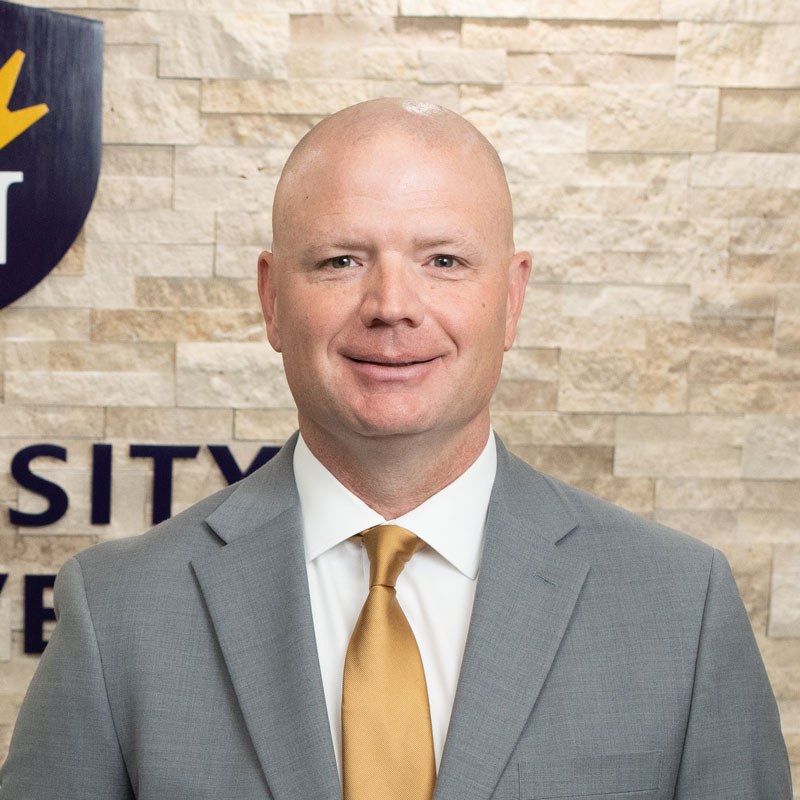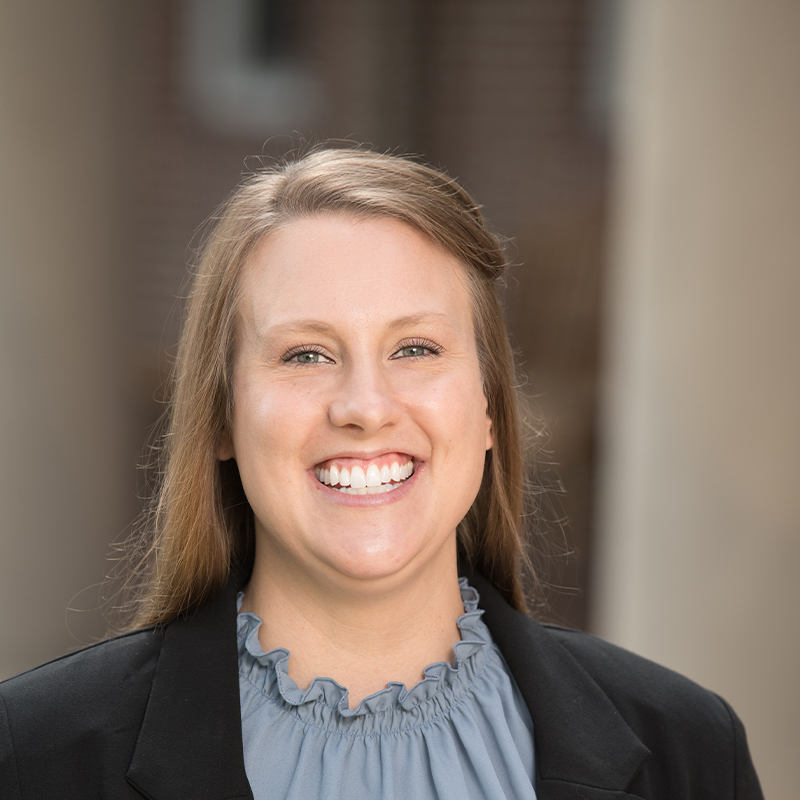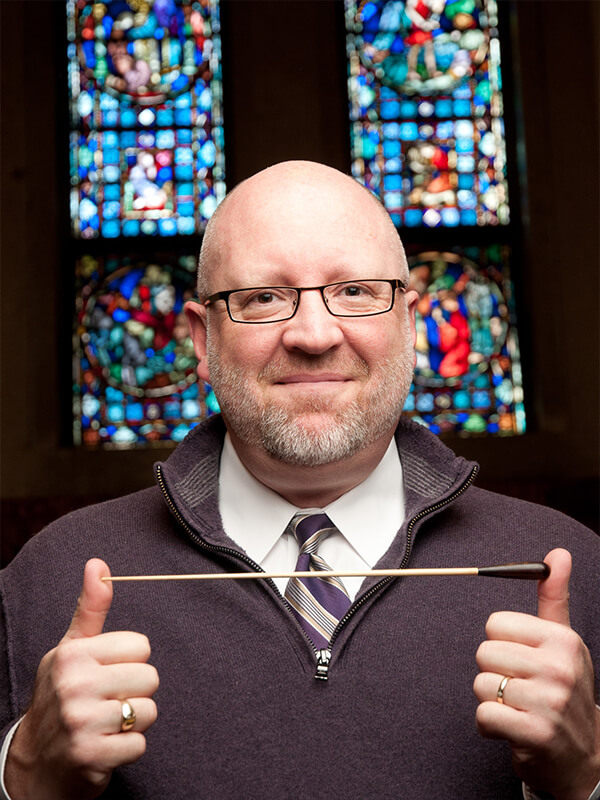Rhonda Slagter
CONTACT INFORMATION
CONTACT INFORMATION
Mel Johnson Media Center (KTIS), M220
Mel Johnson Media Center
2993 Snelling Ave. N.
St. Paul, MN 55113
651-631-5045
CONTACT INFORMATION
651-286-7463
“After having taught philosophy courses at Cedarville University beginning in 1997 and then at the University of Northwestern since 2004, I was honored with the promotion to Professor Emeritus of Philosophy in 2021. My favorite course was the Seminar on Jonathan Edwards, which I had taught every year since 1998. The course concentrates on his philosophical argument for a particular view of God’s purpose and motivation in creating the world. I am currently working on projects that relate the fundamental concepts of science and mathematics to divine action. Jonathan Edwards has influenced me deeply and I deliberately attempt to conceptually connect my current research to biblical theology especially the fundamental idea that what gives the world and the Bible its unity is that God is acting according to His plan for His purposes in Christ.”
Specialty Areas
- Logic & Metaphysics
- Jonathan Edwards’ End of Creation
Professional Accomplishments
Select Publications
- Jonathan Edwards’ Concerning The End for Which God Created the World: Exposition, Analysis, and Philosophical Implications.
Göttingen, Germany: Vandenhoeck & Ruprecht, 2020.
Read Chapter 12: “Divine Action and the Persistence of Physical Objects.” - James C. McGlothlin, review of Jonathan Edwards’ Concerning The End for Which God Created the World: Exposition, Analysis, and Philosophical Implications. By Walter J. Schultz. Göttingen: Vandenhoeck & Ruprecht Verlage, 2020. Philosophia Christi 22. 2 (2020), 353-357.
- “Is Jonathan Edwards a Neo-Platonist? The Concept ofEmanation in End of Creation.” Jonathan Edwards Studies 8.1 (2018), 17–36.
- “Divine Action, Ontological Dependence, and Truthmaking”
Mereologies, Ontologies and Facets: The Categorial Structure of Reality. Paul M. W. Hackett, PhD (editor), (Lanham, Maryland: Rowman & Littlefield Publishers (2018), 201–233. - “The Incoherence of Divine Possibility Constructivism.” International Journal for the Philosophy of Religion (2018).
- “A Counterexample Deity Theory.” Philosophia Christi 19.1 (2017), 1-21.
- “Divine Compositionalism as Occasionalism.” Co-author: Lisanne D’Andrea-Winslow, Occasionalism Revisited: New Essays from the Islamic and Western Philosophical Traditions. Nazif Muhtaroglu (ed), (Abu Dhabi, UAE: Kalam Research & Media, 2017), 219-236.
- “Causation, Dispositions, and Physical Occasionalism.” Co-author: Lisanne D’Andrea-Winslow, Zygon, The Journal of Science and Religion 52.4 (2017), 962-983.
- “The Solubility of Salt: A Divine Action Account.” Co-author: Lisanne D’Andrea-Winslow, Theology and Science 16.1 (2018), 1-19.
- “The Metaphysics of Jonathan Edwards’ End of Creation.” Journal of the Evangelical Theological Society 56.2 (2016), 339”“59.
- “Truth and Truth-makers.” Philosophia Christi 17.1 (2015), 7-30.
- “The Actual World From Platonism to Plans.” Philosophia Christi 16.1 (2014), 81-100.
- “Jonathan Edwards’ Philosophical Argument for God’s End in Creation.” Jonathan Edwards Studies 4.3 (2014), 297-326.
- “Jonathan Edwards’ Argument That God’s End in Creation Must Manifest His Supreme Self-regard.” Jonathan Edwards Studies 4.1 (2014), 81-103.
- Divine Compositionalism: A Form of Occasionalism or a Preferable Alternative View of Divine Action? Co-author: Lisanne D’Andrea-Winslow Theology and Science 12.3 (2014), 216-235.
- “Jonathan Edwards’ Concept of an Original Ultimate End,” Journal of the Evangelical Theological Society, 56/1 (2013): 107-22.
- “Jonathan Edwards’ End of Creation and Spinoza’s Conundrum,” Jonathan Edwards Studies 2.2 (2012), 28-55.
- The Moral Conditions of Economic Efficiency. (Cambridge Studies in Philosophy and Law, Cambridge University Press, 2001).
- “What is the Relationship of Worldviews to Truth?” chapter in
Christian Contours: How a Biblical Worldview Shapes the Mind and Heart. Douglas S. Huffman, ed., (Grand Rapids, MI: Kregel, 2012). - “Toward a Realist Modal Structuralism: A Christian Philosophy of Mathematics,” Philosophia Christi 12.1 (2010), 139-154.
- “Dispositions, Capacities and Powers: A Christian Analysis,” Philosophia Christi 11.2 (2009), 21-38.
- “‘No-Risk’ Libertarian Freedom: A Refutation of the Free-will Defense,” Philosophia Christi 10.1 (2008),183-199.
- “Jonathan Edwards’ End of Creation: An Exposition and Defense.” Journal of the Evangelical Theological Society, 49.2 (2006), 247-271.
- “Wittgenstein and Postmodern Epistemology.” Wittgenstein’s Philosophy of Mathematics. (Vienna: Verlag Hölder-Pichler-Temsky, 1993).
Presentations
- “Divine Aseity, Ontological Momentum, and the Persistence of Physical Objects.” Northwestern Scholarship Symposium, May 2018
- “No Other Foundation.” Twin Cities Undergraduate Theology Conference, May 2018
- “Divine Action, Ontological Dependence, and Truthmaking.” Science and Theology Symposium, October 2017
- “Jonathan Edwards = Idealism in End of Creation.” Evangelical Theological Society, Providence, RU, November, 2017
- “Divine Action, Ontological Dependence, and Truthmaking.” Metaphysics of Entanglement Project, University of Oxford, May 2017
- “Divine Action, Ontological Dependence, and Truthmaking.” Northwestern Scholarship Symposium, May 2017
- “The Concept of Emantion in Jonathan Edwards’ End of Creation.” Evangelical Theological Society, San Antonio, November 2016.
- “The Incoherence of Possibility Constructivism.” 4th Biennial Philosophy of Religion Conference University of Glasgow, Scotland, May 2016.
- “Causation, Dispositions, and Divine Action.” Co-presenter: Lisanne D’Andrea-Winslow University of St. Thomas, St Paul, April, 2016.
- “No Other Foundation.” Loving God With Your Mind, University of Northwestern, St. Paul, February, 2016.
- “The Metaphysics of Jonathan Edwards’ End of Creation.” Evangelical Theological Society, Atlanta, November 2015.
- Metaphysics of Entanglement Project, University of Oxford, July 9, 2015.
CONTACT INFORMATION
Professor Krystal Seeling began as Clinical Adjunct Faculty in 2017 and became a full-time Assistant Professor in 2020. She received her ADN from St. Catherine University, BSN from Bethel University, and MSN from Indiana Wesleyan University. She worked as a bedside nurse at the University of Minnesota Medical Center for 13 years. Her specific areas of expertise include adult medical-surgical and orthopedic nursing and pediatric cardiac and medical-surgical nursing. Her expertise in education is interprofessional education and experiential learning through clinical and simulation nursing. She has also held the professional roles of preceptor and mentor for both nursing students and new nursing staff.
Professor Seeling teaches Serving Through Interprofessional Collaboration and Pathophysiology courses. She teaches clinical for the Foundations, Advanced, Pediatric, and Mental Health courses. She has led students on transcultural nursing trips to Ecuador and Brazil.
Professor Seeling says, “I hope that my nursing students would always see every patient they encounter as a blessing to care for and as valued, important, and loved because they are God’s beloved and carry His image. Because of that, they would care for their patients with a love, mercy, compassion, and kindness that sets them apart from their peers and makes their patients feel valued, important, and loved as they experience the reflection of God’s love through our nursing students and alums.”
Her hobbies include spending time with her husband and children, canoeing, kayaking, hiking, camping, swimming, reading, growing flowers, and baking.
CONTACT INFORMATION
651-631-5252
Timothy Sawyer enjoys an active and varied career as a conductor, educator, clinician, and professional singer. Since 1989, Sawyer has been a member of the music faculty at University of Northwestern – St. Paul (unwsp.edu/music) where he is director of choral activities, conducts both the Men’s Chorus and the critically-acclaimed Northwestern Choir, teaches conducting, and serves as artistic director of Christmas at Northwestern, an annual event attended by 4,000 people. With its motto, “Choral music direct from the heart,” and a distinctive mission that integrates excellence in concertizing, outreach, and cross-cultural ministry, the Northwestern Choir has performed extensively throughout the United States, Canada, Scandinavia, the Baltic states, and throughout western, central and eastern Europe, including Ukraine, where it was the first American university choir invited to perform in Kiev’s Tchaikovsky Conservatory.
With formal musical training at Bethel University (St. Paul, Minnesota), Exeter University (England), University of Minnesota, and doctoral-level study at University of Iowa, Sawyer has also completed advanced conducting studies with Helmuth Rilling, the late Margaret Hillis, Vance George, Gregg Smith, Sweden’s Eric Ericson, and Robert Berglund, among others. In addition to extensive experience as a tenor soloist throughout the United States, as a professional chorister, he is a veteran of several professional choirs, among them the Dale Warland Singers, the Ensemble Singers of VocalEssence of Minnesota, South Dakota Chorale, Omaha’s SDG Cantorum, Montana Chorale, the Minnesota Beethoven Festival Chorale, the Oregon Bach Festival Chorus, with which he shared in a collective GRAMMY Award in 2000 for the recording of Kryzysztof Penderecki’s Credo, and the GRAMMY-nominated South Dakota Chorale, winner of the American Prize in Choral Performance—professional choir devision.
From 1997 to 2004, Sawyer served as assistant artistic director of the Minnesota Chorale, principal symphonic chorus of the Minnesota Orchestra, and frequent collaborator with the Saint Paul Chamber Orchestra. Since 2004, he has led the Two Rivers Chorale (www.tworiverschorale.org), a Minneapolis/St. Paul-based civic choir. An enthusiastic and gifted teacher of conducting, “the well-known conductor and much admired teacher” Sawyer has been on the artistic faculty for conducting master classes at University of Minnesota, Toronto and Oregon Bach Festivals, and throughout Ukraine. He holds an ongoing position as a conductor with the Byzantine Choral Festival in Minneapolis. He is a board member and adjunct faculty member with Music in World Cultures (www.miwc.org), a faith-based organization which uses music to break down barriers and build bridges to establish cross-cultural relationships throughout eastern Europe. In recent years, Sawyer has led numerous choral festivals throughout the United States, and internationally in Ukraine, Hungary, Austria, the Czech Republic, and Asia. He lives in Minneapolis with his wife, Heidi, and daughters, Erika & Emily.





